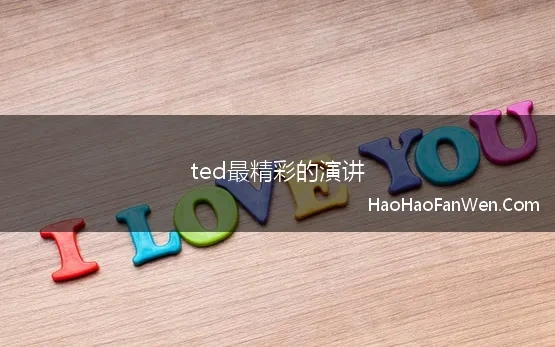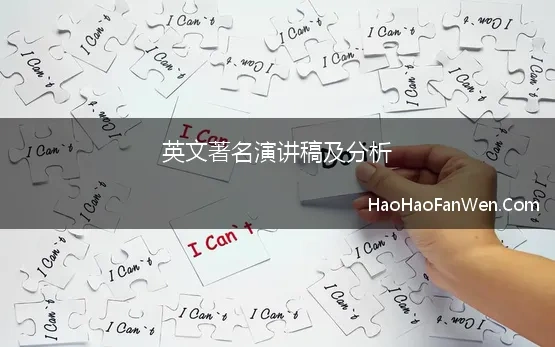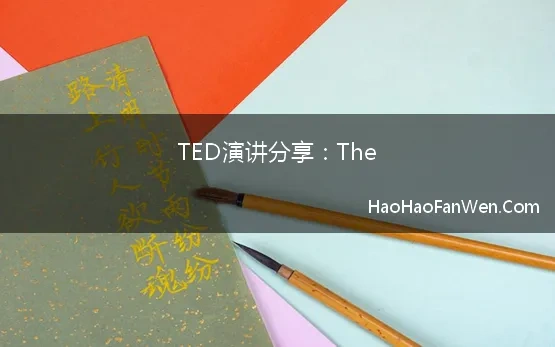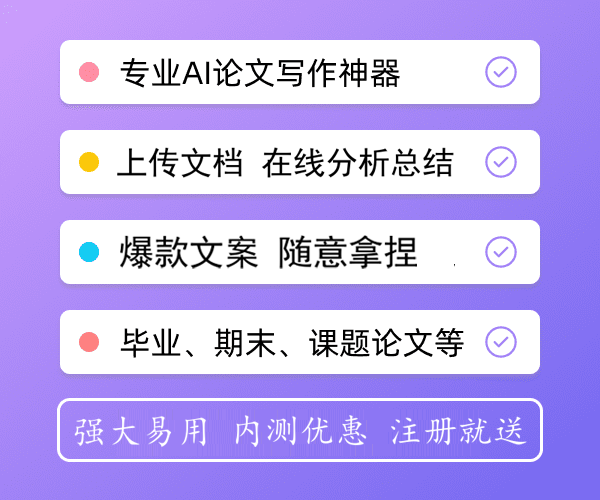ted最精彩的演讲(过去一年最受欢迎的14个TED演讲)
下面是好好范文网小编收集整理的ted最精彩的演讲(过去一年最受欢迎的14个TED演讲),仅供参考,欢迎大家阅读!

TED的演讲对英语爱好者来说应该都不陌生,练习听力口语两不误。
“TED”是technology, entertainment, design在英语中的缩写,即技术、娱乐、设计。事实上,这场盛会涉及的领域还在不断扩展,展现着涉及几乎各个领域的各种见解。参加者们称它为 “超级大脑SPA”和“四日游未来”。
每年3月,TED大会在北美召集众多科学、设计、文学、音乐等领域的杰出人物,分享他们关于技术、社会、人的思考和探索。
比尔·克林顿、比尔·盖茨、英国动物学家珍妮·古道尔、美国建筑大师弗兰克·盖里、维珍品牌创始人理查德·布兰森爵士……都曾经担任过演讲嘉宾。
中国演员韩雪也分享过一段自己在TED的英文演讲视频,通过参加的一些活动告诉大家:如何做一个积极的悲观主义者,如何面对生活,迎接挑战。视频可戳:undefined_腾讯视频
前不久,TED出了一份清单
评选出了2017年最受欢迎的TED Talk,
排名一个居然是在年初爆出大新闻的Elon Musk的TED演讲&专访视频。
一起来看~
No.1
ELON MUSK : The future we are building -and boring
我们所创造的未来以及“Boring”公司
作为2017年度排名第一的最受欢迎TED演讲,Elon Musk和TED创始人Chris Anderson在2017年4月28日的对话中讨论了Elon在洛杉矶地下修建隧道的新计划、最新款的特斯拉、SpaceX回收火箭、未来移民火星、做事的动机等精彩内容。
No.2
ANJAN CHATTERJEE : How your brain decides what is beautiful
大脑如何定义什么是美?
Anjan Chatterjee用进化心理学和认知神经科学来研究自然界最吸引人的概念之一:美。 那么大脑是如何判断美丑的呢,为什么将线条、颜色、形式做某些配置之后就能感动到我们?根据马洛斯的需求层次分析,“美”应该是属于人类比较靠上的需求层次。生存和安全等基本要求被满足后,才会涉及到较为抽象的“美”。但其实根据研究表明,对美的鉴别和欣赏,是如同吃喝和性欲一样的人类本能。即使你的大脑在进行别种任务的时候(例如判断两张不同的照片是否为同一个人),大脑仍会自动的判断对象是否“美”。从这个意义上说,每个人都是“外貌协会”成员。
No.3
MEGAN PHELPS-ROPER: I grew up in the Westboro Baptist Church.Here is why I left.
我为什么要离开威斯特布路浸信会——那个我长大的地方
Megan Phelps-Roper生长在一个可以被称之为“邪教”的组织,Westboro Baptist Church。从5岁起就跟着父母和长辈,举着她读不懂的抗议牌,参加游行示威。当她试图通过网络宣传“教义”时,却慢慢对从小接受的观念产生了怀疑,进而与其决裂。 作为没有什么信仰的人,固然是无法完全理解宗教。但无论什么信仰,总应以善和爱为本,而非仇恨。
No.4
SHAH RUKH KHAN: Thoughts on humanity, fame and love
人性,名声和爱
"I sell dreams, and I peddle love to millions of people," says Shah Rukh Khan, Bollywood's biggest star. In this charming, funny talk, Khan traces the arc of his life, showcases a few of his famous dance moves and shares hard-earned wisdom from a life spent in the spotlight.
No.5
ANIL SETH: Your brain hallucinates your conscious reality
大脑如何塑造你认知的现实?
Right now, billions of neurons in your brain are working together to generate a conscious experience -- and not just any conscious experience, your experience of the world around you and of yourself within it. How does this happen? According to neuroscientist Anil Seth, we're all hallucinating all the time; when we agree about our hallucinations, we call it "reality." Join Seth for a delightfully disorienting talk that may leave you questioning the very nature of your existence.
No.6
EMILY ESFAHANI SMITH: There is more to life than being happy
快乐并不是人生的全部
Our culture is obsessed with happiness, but what if there's a more fulfilling path? Happiness comes and goes, says writer Emily Esfahani Smith, but having meaning in life -- serving something beyond yourself and developing the best within you -- gives you something to hold onto. Learn more about the difference between being happy and having meaning as Smith offers four pillars of a meaningful life.
No.7
JOSEPH REDMON: How computers learn to recognize objects instantly
电脑如何识别物体?
Ten years ago, researchers thought that getting a computer to tell the difference between a cat and a dog would be almost impossible. Today, computer vision systems do it with greater than 99 percent accuracy. How? Joseph Redmon works on the YOLO (You Only Look Once) system, an open-source method of object detection that can identify objects in images and video -- from zebras to stop signs -- with lightning-quick speed. In a remarkable live demo, Redmon shows off this important step forward for applications like self-driving cars, robotics and even cancer detection.
No.8
ADAM GRANT: Are you a giver or a taker?
你是“贡献者”还是“索取者”?
In every workplace, there are three basic kinds of people: givers, takers and matchers. Organizational psychologist Adam Grant breaks down these personalities and offers simple strategies to promote a culture of generosity and keep self-serving employees from taking more than their share.
No.9
GIULIA ENDERS: The surprisingly charming science of your gut
人体内肠道的神奇运作
Ever wonder how we poop? Learn about the gut -- the system where digestion (and a whole lot more) happens -- as doctor and author Giulia Enders takes us inside the complex, fascinating science behind it, including its connection to mental health. It turns out, looking closer at something we might shy away from can leave us feeling more fearless and appreciative of ourselves.
No.10
ADAM ALTER: Why our screens make us less happy
为什么屏幕会使我们越来越不开心?
What are our screens and devices doing to us? Psychologist Adam Alter studies how much time screens steal from us and how they're getting away with it. He shares why all those hours you spend staring at your smartphone, tablet or computer might be making you miserable -- and what you can do about it.
No.11
ZEYNEP TUFEKCI:We are building a dystopia just to make people click on ads
我们正在建立一个仅为了让人点广告的反乌托邦社会
We're building an artificial intelligence-powered dystopia, one click at a time, says techno-sociologist Zeynep Tufekci. In an eye-opening talk, she details how the same algorithms companies like Facebook, Google and Amazon use to get you to click on ads are also used to organize your access to political and social information. And the machines aren't even the real threat. What we need to understand is how the powerful might use AI to control us -- and what we can do in response.
No.12
THORDIS ELVA, TOM STRANGER: Our story of rape and reconciliation
我们的故事:强奸与和解
In 1996, Thordis Elva shared a teenage romance with Tom Stranger, an exchange student from Australia. After a school dance, Tom raped Thordis, after which they parted ways for many years. In this extraordinary talk, Elva and Stranger move through a years-long chronology of shame and silence, and invite us to discuss the omnipresent global issue of sexual violence in a new, honest way. For a Q&A with the speakers, visit
No.13
TIM FERRISS: Why you should define your fears instead of your goals
为什么该认清恐惧而不是目标?
The hard choices -- what we most fear doing, asking, saying -- are very often exactly what we need to do. How can we overcome self-paralysis and take action? Tim Ferriss encourages us to fully envision and write down our fears in detail, in a simple but powerful exercise he calls "fear-setting." Learn more about how this practice can help you thrive in high-stress environments and separate what you can control from what you cannot.
No.14
DAVID LEE: Why jobs of the future won’t feel like work
为什么未来的工作不像是工作?
We've all heard that robots are going to take our jobs -- but what can we do about it? Innovation expert David Lee says that we should start designing jobs that unlock our hidden talents and passions -- the things we spend our weekends doing -- to keep us relevant in the age of robotics. "Start asking people what problems they're inspired to solve and what talents they want to bring to work," Lee says. "When you invite people to be more, they can amaze us with how much more they can be."
最后给朋友献上以上14个2017热门演讲合集链接:
看完别忘了回来告诉米姐,你最喜欢哪个演讲哦~
✔欢迎加入译国译民翻译米学习交流Q群:485676404,每日分享最新的实用词汇与实务练习,成为更优秀的自己!















